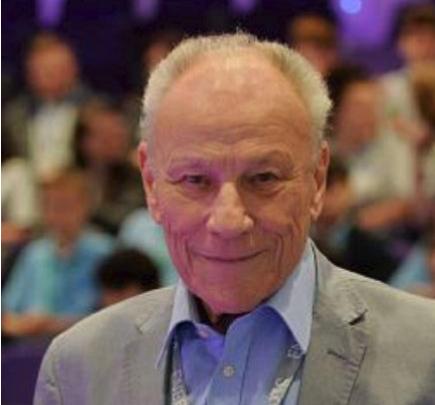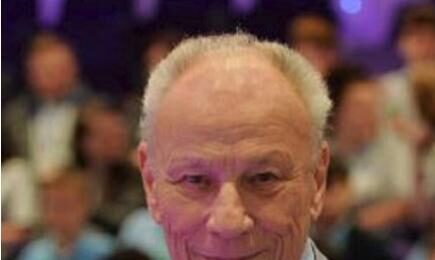Tomi was born in Budapest, Hungary, in 1936 and lived with his parents as an only child. His father owned a scrap metal business in the city suburbs, however, in 1939 after the introduction of anti-Jewish laws he was forced to sell it and taught himself to make decorative ceramic figures that he could sell from home instead. Tomi’s mother baked food for others to earn the family a little extra money to live on.
In 1943, when Tomi was 7 years old, his father was called up to a forced labour unit of the Hungarian Army fighting on the Soviet front. He had very little contact with the family. Meanwhile, Tomi and his mother were left in Budapest, where in 1944 the German army took over and introduced more anti-Jewish laws. They were forced to move from their home into a one-bedroom flat with an aunt and cousin and were only allowed to leave it between 11am and 5pm each day. Tomi’s father was eventually granted a short period of leave, but when he returned home, he was reported and arrested, despite having a permit that allowed him to be away from the camp. Tomi and his mother never saw him again and he was eventually presumed dead.
In November 1944, the government ordered a ghetto to be established in Budapest. It was a walled district of less than a square mile. However, Tomi and his mother managed to find a ‘safe house’ set up by an embassy and here they shared a 4-bedroom house with 35 other people. Tomi’s mother was rounded up whilst delivering cake, and in fear of being deported, she ran away from the armed guards in an effort to return to Tomi and stay alive.
Tomi’s mother later realised that the ‘safe house’ was no longer safe and arranged for them to go into hiding with a protestant family in the suburbs. They escaped late at night just before Christmas 1944. They were liberated by the advancing Soviet army in January 1945.
Tomi came to Britain on a University scholarship in 1956 and qualified as an engineer. He married and had two children, and now has 7 grandchildren.
Avi Stern, President of Ohr Yerushalayim writes:
“Excellent, very clear. The audience was really inspired.”



